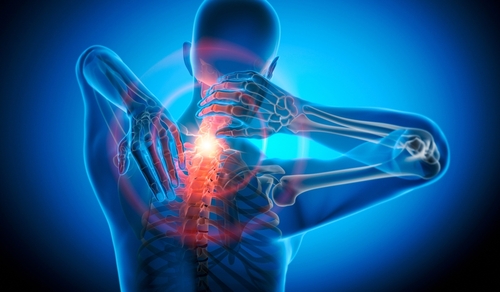Neck pain is a common issue that can significantly impact daily life, especially when linked to stress. Many people don’t realize how deeply stress and neck pain are connected. The good news is that understanding this relationship can help you manage your symptoms and improve your overall quality of life.
How Stress Contributes to Neck Pain
Stress activates the body’s fight-or-flight response, which triggers muscle tension, particularly in the neck and shoulders. Over time, this tension leads to discomfort, pain, and even chronic issues. The neck, with its muscles connecting to the base of the skull, often bears the brunt of prolonged stress. This can manifest as headaches, stiffness, and pain radiating to other areas, such as the arms. Many people may not even realize that their headaches or tingling sensations in their arms are related to neck tension.
Common Causes of Neck Pain
Most neck pain cases—about 90%—are mechanical in nature, meaning they arise from issues with the muscles and joints. Common causes include poor posture, prolonged periods of sitting (especially when working on computers or phones), and sedentary lifestyles. In today’s world, where many people spend hours in front of screens, it’s no wonder neck pain is so widespread.
Beyond posture, repetitive motions or specific work-related activities can also strain the neck. For example, jobs that involve overhead work or poor ergonomic setups can exacerbate muscle tension, leading to persistent discomfort.
The Role of Lifestyle Habits
Our modern lifestyle plays a significant role in neck pain development. Long hours spent sitting in one position—whether at a desk, on the couch, or using mobile devices—often lead to poor posture. Even a perfectly ergonomic setup can cause issues if you remain static for too long. Humans are built to move, and prolonged inactivity can worsen neck stiffness and pain.
To prevent this, consider following the 90-degree rule, where your screen is at eye level, your arms form a 90-degree angle while typing, and you take breaks every 20 minutes. Incorporating small movements or stretches can make a big difference in relieving tension and promoting healthier posture.
How Neck Pain Affects Your Health
Left untreated, neck pain can significantly impact mobility and quality of life. Over time, chronic neck pain may limit your range of motion, weaken muscles, and cause nerve-related issues like numbness, tingling, or even loss of strength. In severe cases, disk herniation can occur, leading to debilitating pain and functional loss. This is why it’s essential not to ignore persistent symptoms, even if they seem mild at first.
Red Flags That Require Immediate Attention
While most neck pain stems from mechanical issues, certain symptoms should prompt immediate medical attention. If you experience neck pain accompanied by severe headaches, tingling or numbness in the arms, or difficulty with bowel or bladder control, it may signal a more serious issue, such as a herniated disc or nerve compression. In these cases, timely intervention is critical to prevent long-term complications.
Managing Neck Pain Linked to Stress
Managing neck pain caused by stress involves addressing both the physical and emotional aspects of the problem. Simple, non-invasive strategies can go a long way in reducing symptoms:
- Deep Breathing: This activates the parasympathetic nervous system, which helps counteract the fight-or-flight response. Incorporating breathing exercises into your daily routine can reduce muscle tension and alleviate pain.
- Massage Therapy: A relaxing massage can target the areas of muscle tension in the neck and shoulders, providing relief and promoting relaxation.
- Exercise: Regular physical activity not only strengthens the muscles that support the neck but also helps to “burn off” the stress hormones that contribute to tension.
- Healthy Diet: Reducing high-sugar foods can prevent energy crashes, which often exacerbate stress. A balanced diet supports overall health and well-being, indirectly helping to manage stress-related neck pain.
Treatment Options for Neck Pain
If lifestyle changes aren’t enough, there are various treatment options to consider. Conservative treatments such as manual therapy and modality work (using ultrasound or other technologies) are often the first steps. These therapies aim to relieve pain and restore function with minimal intervention. For more severe cases, minimally invasive options like injections may be recommended, but surgery is usually reserved for the most extreme conditions.
The key to managing neck pain effectively is consistency. Whether it’s sticking to a conservative therapy plan or making small, sustainable lifestyle adjustments, acting early and being proactive will prevent your neck pain from turning into a long-term problem.
When to Seek Help
If you’re experiencing chronic neck pain or hesitant to seek help, it’s important to understand that early intervention can prevent more serious issues from developing. A thorough assessment by a healthcare professional can rule out any underlying conditions and help you find a treatment plan tailored to your needs.
At our clinic, we encourage patients to come in for an evaluation, even if it’s just to discuss concerns. We can guide you through your options without any commitment. Taking that first step toward managing your neck pain could drastically improve your quality of life.
PinPoint Health Can Help
Neck pain, especially when exacerbated by stress, can be a persistent and frustrating issue. However, understanding its causes and making simple lifestyle adjustments can lead to significant improvements.
From practicing better posture to incorporating stress-reducing techniques, there are many ways to manage and prevent neck pain. If you’re dealing with chronic discomfort, don’t hesitate to seek professional advice. Early action is the best way to keep your neck—and your life—moving freely.






